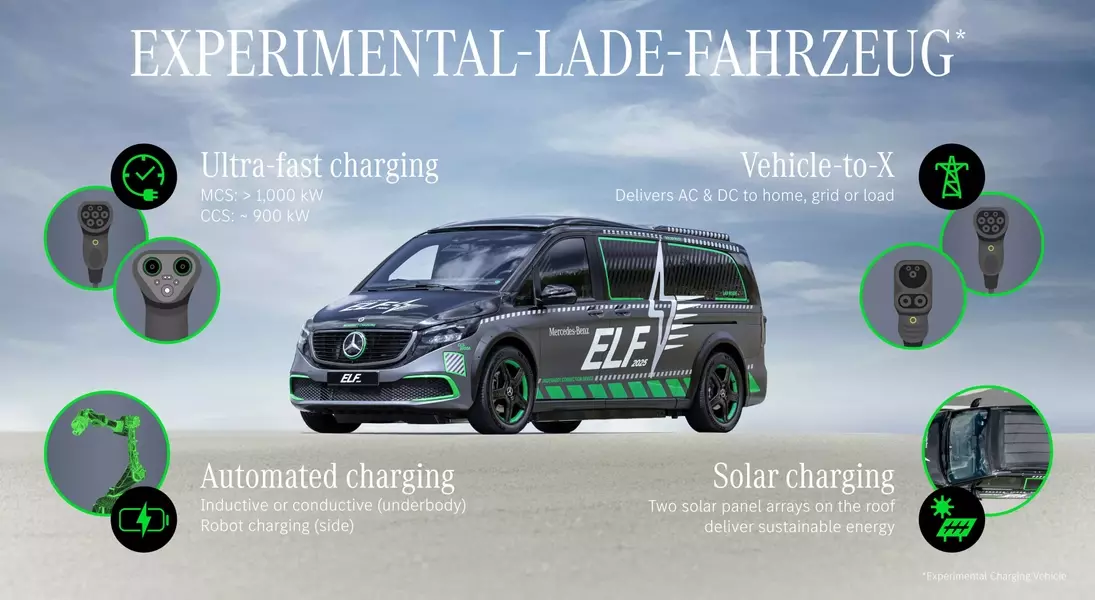
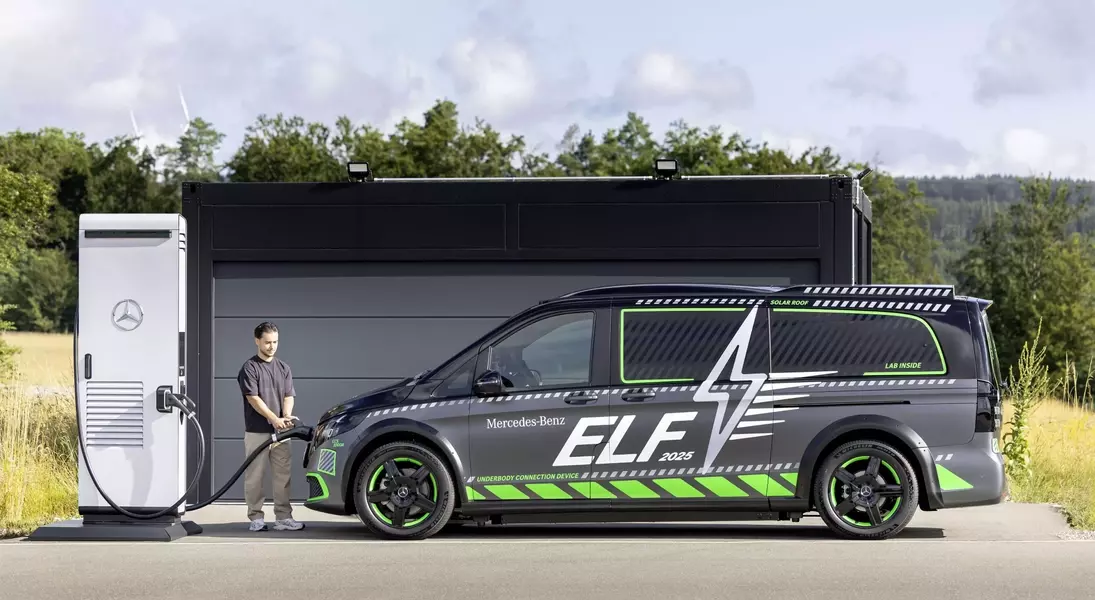
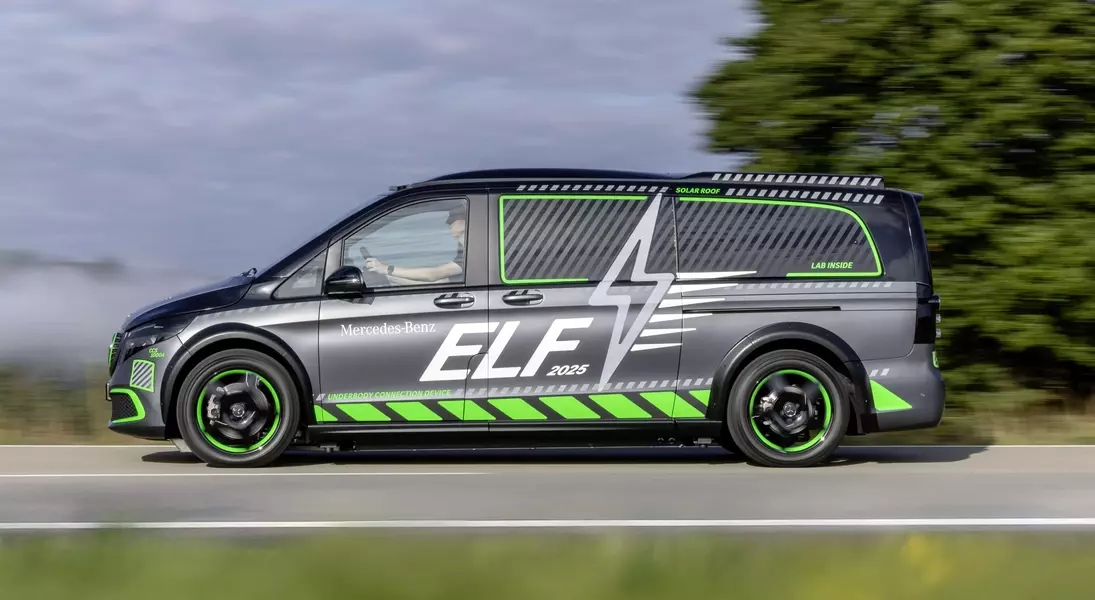
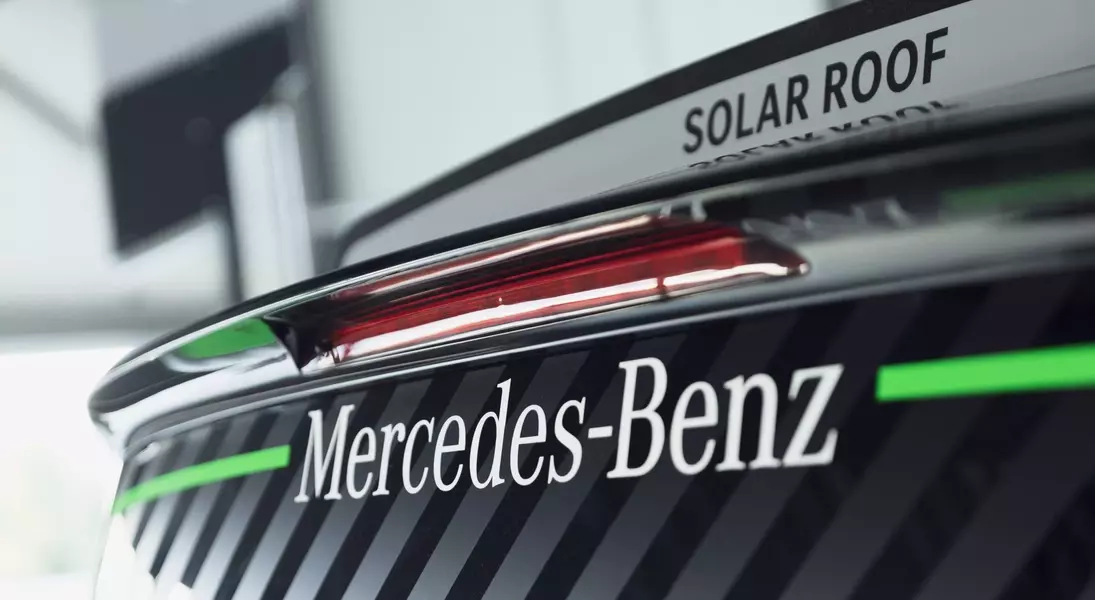
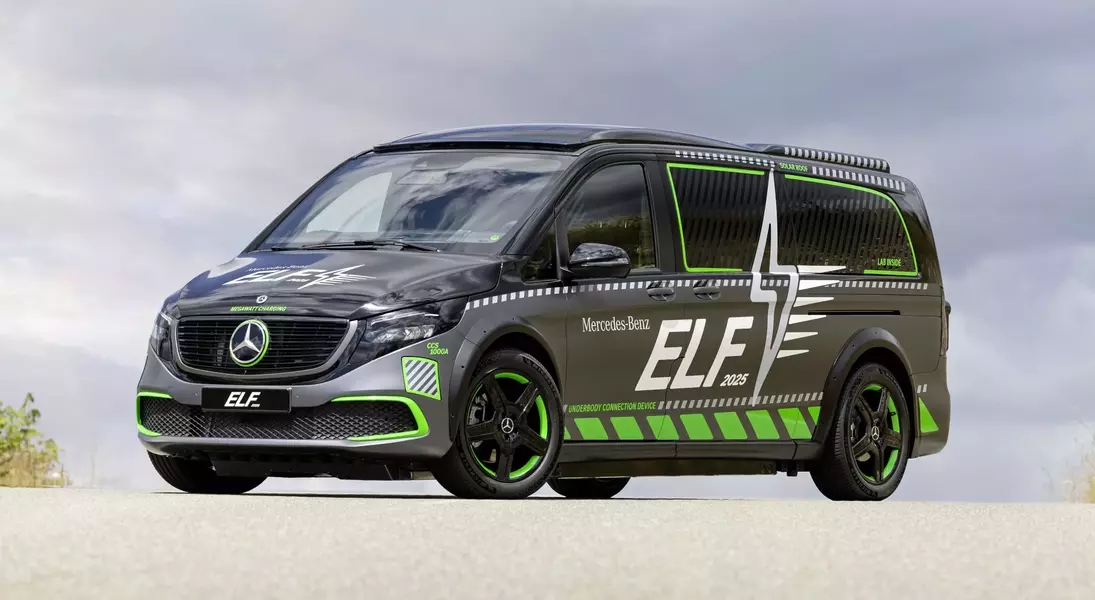
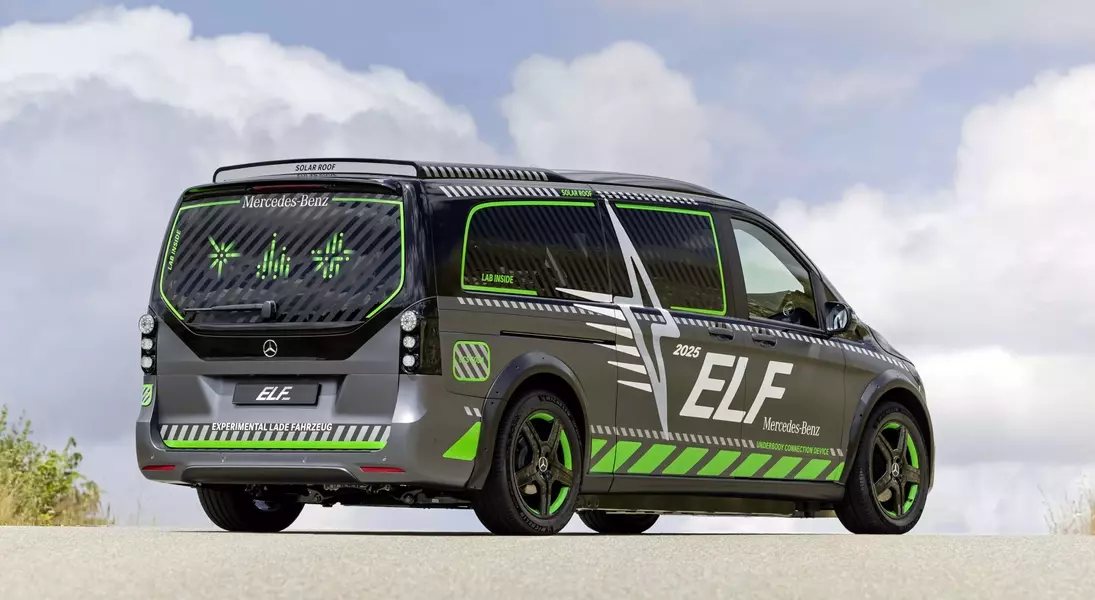
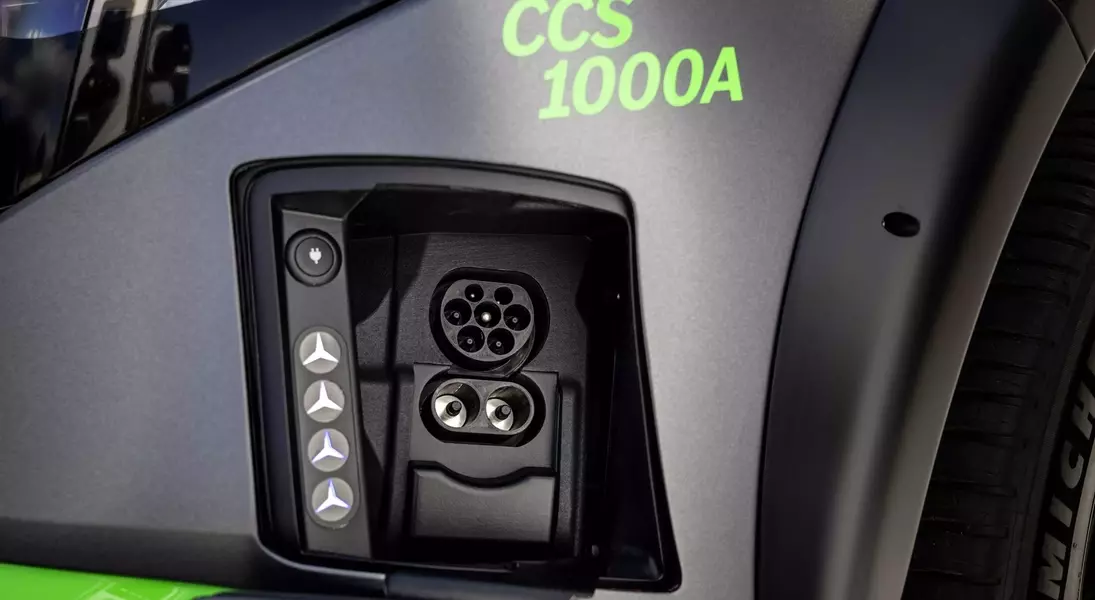
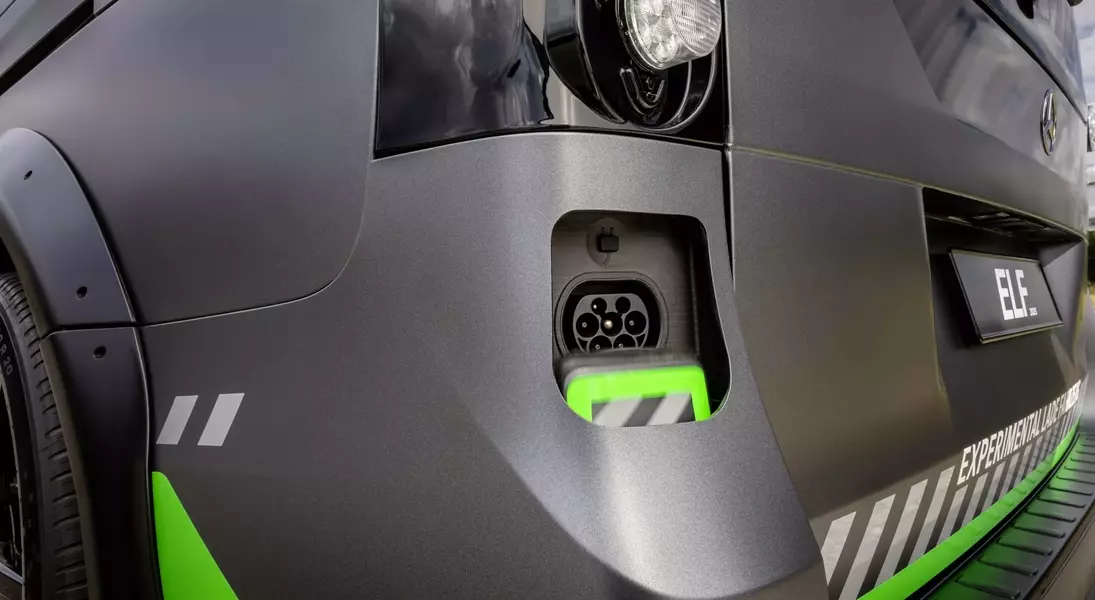
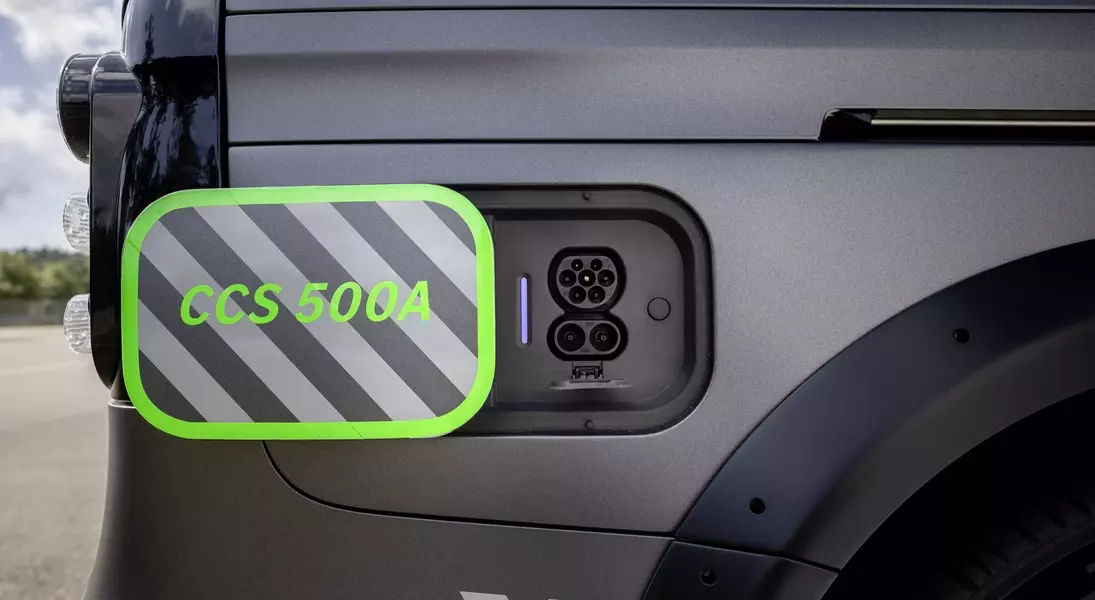
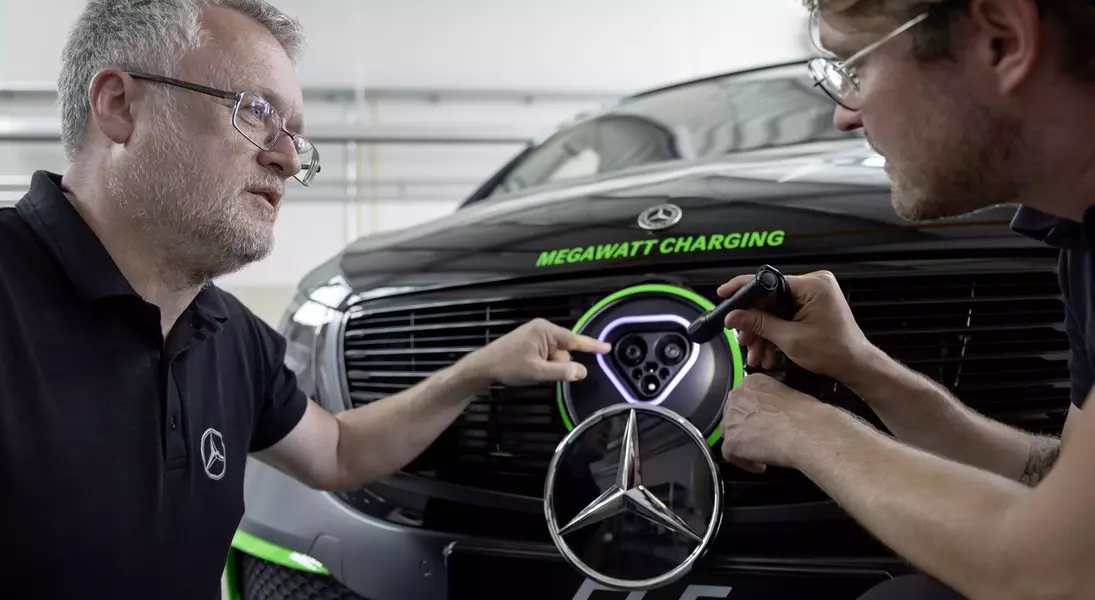
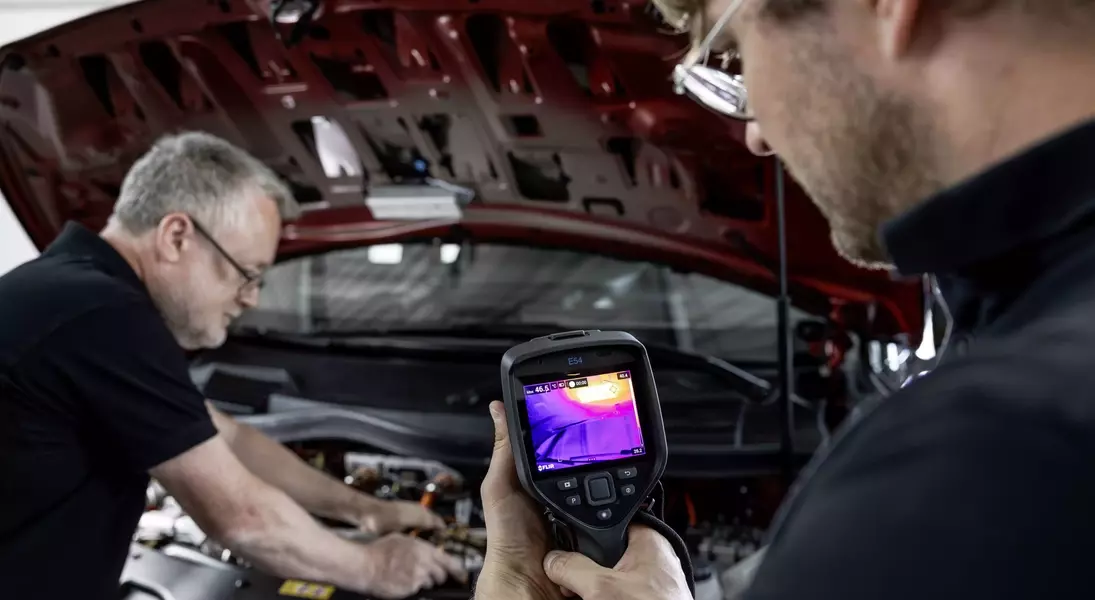
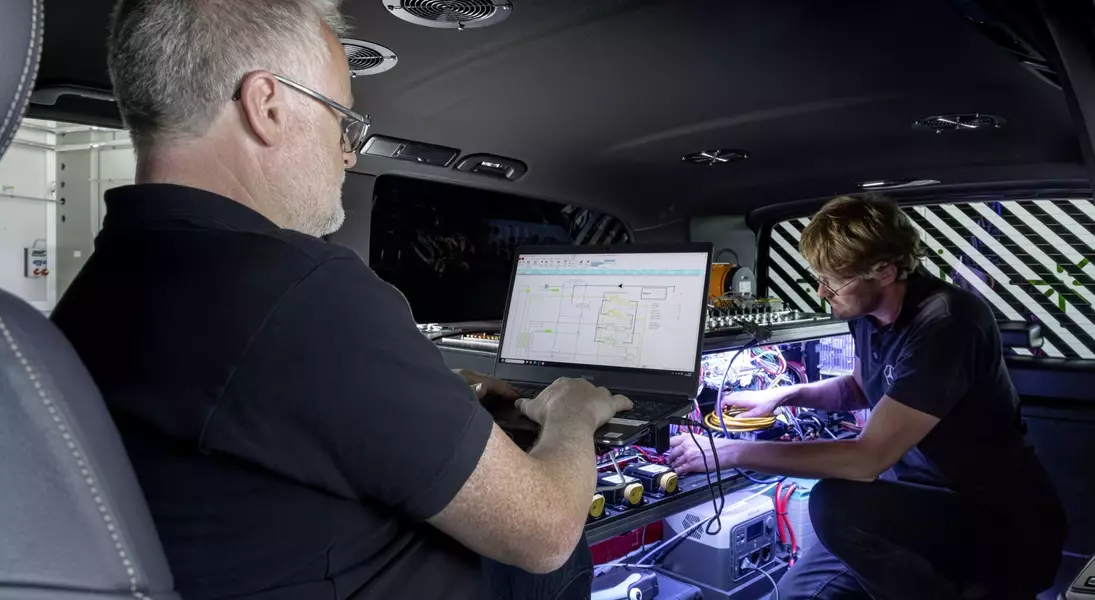
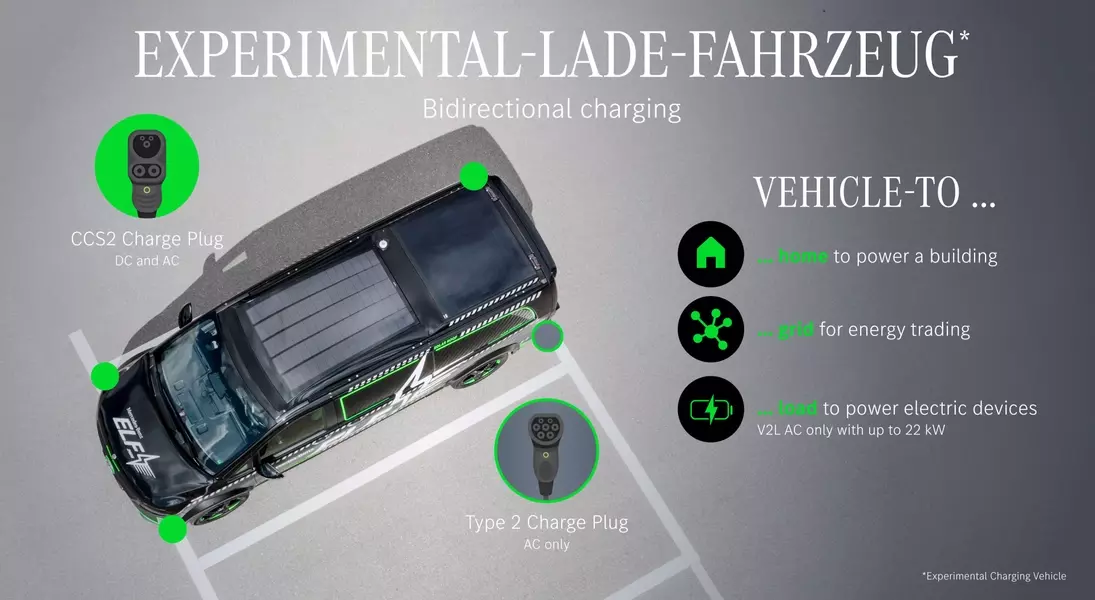
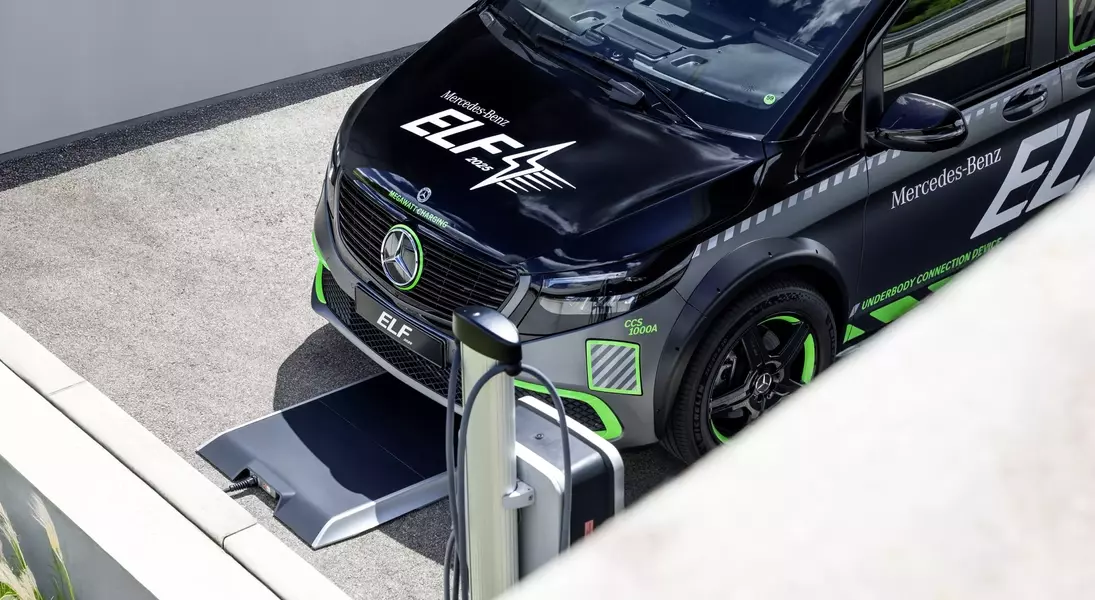


Innovating the Future: Mercedes-Benz Redefines Electric Vehicle Charging with ELF
Introducing ELF: The Experimental Charging Vehicle
Mercedes-Benz is developing a groundbreaking vehicle known as the ELF, an acronym for \"Experimental-Lade-Fahrzeug\" or \"Experimental Charging Vehicle.\" This prototype, constructed from a Metris van, functions as a mobile research unit. Its primary purpose is to merge vehicle engineering with infrastructure concepts, enabling the real-world testing of advanced charging technologies. Mercedes describes the ELF as a holistic endeavor, integrating various EV charging methods into a single platform to explore comprehensive solutions for electric mobility.
Accelerating the Pace of Electric Vehicle Charging
Mercedes-Benz is committed to pushing the boundaries of charging technology, with the ELF designed to explore the maximum technical capabilities of both the vehicle and charging stations. The van incorporates two advanced fast-charging systems. One is the Megawatt Charging System (MCS), initially developed for heavy-duty applications but adapted for high-power EV charging (exceeding 1,000 kW). Through MCS testing, Mercedes aims to gather data on the thermal endurance and performance limits of high-voltage batteries and associated components, ultimately benefiting long-distance and fleet electric vehicles that require minimal downtime. Additionally, the ELF supports the Combined Charging System (CCS) for rapid charging, achieving up to 900 kW. This capability could allow a 100 kWh battery pack to be fully charged in approximately ten minutes, providing hundreds of miles of range in less time than a typical rest stop break. The real-world charging scenarios simulated by the ELF contribute directly to the development of future Mercedes-Benz models, with components like batteries and CCS hardware already being integrated into upcoming vehicles. For instance, the CONCEPT AMG GT XX recently demonstrated a peak charging power of 1,041 kW in testing.
Transforming Your Vehicle into a Mobile Power Hub
Beyond rapid charging, Mercedes' experimental electric van is also equipped with bidirectional charging capabilities, supporting both AC and DC power flow. This technology enables electric vehicles to act as substantial mobile power banks, a strategic move towards a more sustainable energy transition. In practical terms, this means an EV could power a home during an outage, keeping essential services running for several days. Furthermore, the vehicle's battery could store surplus electricity from solar panels during peak generation hours, then feed it back into the home grid at night when electricity rates are typically higher. Mercedes-Benz estimates that consumers utilizing this technology could save approximately 500 euros annually, potentially offsetting the cost of driving up to 10,000 kilometers. The company plans to roll out bidirectional charging services in Germany, France, and the UK starting in 2026, with upcoming models like the all-electric CLA and GLC already incorporating these advanced features.
Innovations in Wireless and Automated Charging Solutions
Mercedes-Benz is actively researching automated conductive charging using the ELF. This method involves specialized charging plates embedded in the ground that interact with the vehicle, initiating charging once the vehicle is correctly positioned. Although the power is limited to 11 kW, this system significantly reduces the need for cumbersome charging cables, offering a cleaner aesthetic and more convenient experience, particularly in private garages. Additionally, Mercedes is exploring robotic automated charging, especially for environments requiring high currents and robust cables. Such systems are envisioned to benefit fleet operators and promote barrier-free mobility solutions, simplifying the charging process for a wider range of users.
Shaping the Electric Vehicle Landscape for Tomorrow
While the ELF's appearance might be unconventional, it represents Mercedes-Benz's significant investment in enhancing the practicality and appeal of electric vehicle ownership. As consumer interest in EVs evolves, Mercedes is addressing critical aspects of the user experience, from rapid charging on the go to intelligent energy management at home. The core idea is that the future of electric vehicles extends beyond the cars themselves, encompassing a seamless interaction between vehicles, residential energy systems, and the broader electrical grid. The ELF is a unique research platform because it consolidates diverse innovative concepts such as ultra-fast charging, bidirectional energy transfer, wireless induction, automated conductive systems, and robotic charging assistance. Mercedes recognizes that a single charging solution will not suffice for all future EV needs, and by simultaneously evaluating these varied technologies, the company can pinpoint the most effective solutions for different scenarios, ultimately advancing the electric mobility ecosystem.
